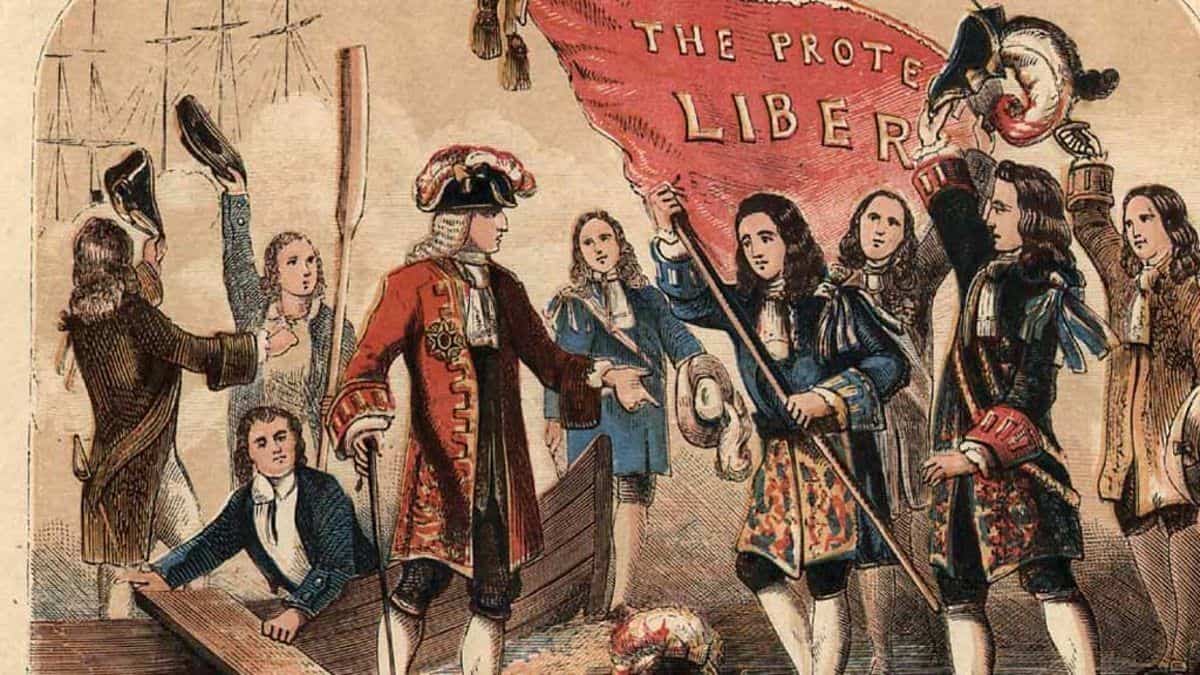How a ‘Bloodless’ Revolution Redefined England
Hey there, history enthusiasts! Buckle up as we journey back to 1688, a pivotal year in English history that witnessed the dramatic events of the Glorious Revolution. This revolution wasn’t about bloody battles or violent uprisings; it was a calculated power play that saw Parliament wrest control from the monarchy, forever changing the course of English governance.
But why was it called “Glorious,” and what other names has it been known by? Let’s dive into the heart of this revolution, exploring its causes, key players, and the lasting impact it had on England and the world.
What Sparked the Revolution?
The seeds of the Glorious Revolution were sown long before 1688, rooted in the religious and political tensions brewing in England.
- Religious Discord: England was deeply divided between Catholics and Protestants. When James II, a Catholic, ascended the throne in 1685, it sparked unease among the Protestant majority. Though James initially enjoyed broad support, his open Catholicism and policies favoring Catholics, such as appointing them to key positions, quickly eroded this goodwill. This raised concerns about religious freedom and the potential resurgence of Catholic dominance.
- An Absolute Monarch in the Making: Adding fuel to the fire were James II’s attempts to consolidate power and rule by decree, bypassing Parliament. He saw Parliament as an obstacle to his goals and sought to govern without their consent. This autocratic approach clashed head-on with the growing desire for greater parliamentary control over the monarchy, a concept that had been gaining traction for decades.
- A Catholic Heir Ignites a Crisis: The final straw came in June 1688 with the birth of James II’s son, James Francis Edward. A male Catholic heir cemented fears of a Catholic dynasty replacing Protestant rule in England. This prospect terrified many, pushing them to take drastic measures to prevent it.
William of Orange: A Dutch Prince to the Rescue?
Faced with a monarch seemingly intent on restoring Catholic dominance and ruling as an absolute king, a group of prominent Englishmen, representing the political elite, took a daring gamble.
- The Invitation: On June 30, 1688, these men, known as the Immortal Seven, secretly sent an invitation to William of Orange, James II’s Protestant son-in-law and the stadtholder of the Dutch Republic. They pleaded with William to intervene, promising him their support if he invaded England and claimed the throne.
- William’s Calculated Move: William, already wary of the growing alliance between England (under James II) and France (under the Catholic Louis XIV), saw an opportunity to reshape the European power balance in his favor. Securing England as a Protestant ally against French expansion was a strategic priority.
The ‘Glorious’ Revolution Unfolds
In November 1688, William of Orange landed in England with a Dutch expeditionary force. His arrival ignited a chain of events that would reshape English history:
- A Bloodless Affair (Mostly): William encountered surprisingly little resistance. Many in James II’s army, along with key political figures, defected to William. Faced with dwindling support and fearing for his safety, James II fled England for France in December 1688.
- The ‘Glorious’ Revolution: The relatively peaceful transfer of power, at least within England, led to the event being dubbed the “Glorious Revolution.” This label, however, masks the more turbulent consequences it had in other parts of the British Isles.
A New Era Dawns: Parliament Asserts Its Authority
With James II gone, Parliament seized the opportunity to redefine the very nature of English governance.
- Joint Monarchs, Limited Power: In a move that underscored Parliament’s newfound dominance, William III and Mary II were crowned joint monarchs in April 1689. This joint rulership acknowledged the power shift, and both William and Mary agreed to limitations on their authority.
- The English Bill of Rights (1689): Parliament’s triumph was cemented with the passage of the English Bill of Rights in December 1689. This landmark document codified key principles:
- Parliamentary Supremacy: The Bill of Rights explicitly stated that the monarch could not suspend laws or levy taxes without Parliament’s consent, establishing the supremacy of Parliament over the crown.
- Guaranteed Freedoms: It guaranteed free elections and freedom of speech within Parliament.
- Protection of Rights: The Bill of Rights also enshrined individual rights, such as protection from cruel and unusual punishment.
These principles would go on to inspire democratic movements and shape the development of constitutional monarchies around the world.
Why the ‘Glorious’ Revolution Was Anything But Bloodless
The label “Glorious Revolution” is misleading. While England experienced a relatively smooth transition of power, other parts of the British Isles, particularly Ireland, faced devastating consequences.
- The Williamite War in Ireland (1689-1691): James II, with the support of Irish Jacobites (supporters of James), attempted to regain his throne, leading to a bloody conflict in Ireland. The war ended with a decisive victory for William’s forces at the Battle of the Boyne (1690), but it left a legacy of bitterness and resentment.
- Religious Persecution & Discrimination: The Glorious Revolution, while a victory for Protestantism in England, led to further persecution of Catholics in Ireland. The Protestant Ascendancy, a period of Protestant domination and discrimination against Catholics, was solidified, casting a long shadow over Irish history.
Explore the dark history of religious persecution and conflict in “the inquisition the crusades“.
A Lasting Legacy: Shaping Modern Democracy
The Glorious Revolution stands as a pivotal event in English and world history:
- The Birth of Constitutional Monarchy: It marked the permanent shift from an absolute monarchy to a constitutional monarchy, where the monarch’s power was checked by Parliament and the law.
- A Blueprint for Democracy: The principles enshrined in the English Bill of Rights, such as parliamentary supremacy and individual liberties, became cornerstones of modern democracy, influencing revolutions and reforms across the globe.
- A Complex and Contested Legacy: While celebrated as a triumph of liberty, the Glorious Revolution also had its darker side, particularly in Ireland. Understanding these complexities is crucial for a nuanced view of history.
Test your knowledge of history’s pivotal conflicts with the “the world wars never surrender fill in the blank worksheet“.
The Glorious Revolution was not just about religion or a single event; it was a culmination of long-standing tensions and a pivotal step toward a more democratic society. It established Parliament as the supreme power in England, paving the way for the parliamentary democracy that exists today. And while its legacy remains complex and contested, its impact on the course of history is undeniable.
Discover the secrets of the Arctic and the groundbreaking “the nautilus expedition north pole” that changed our understanding of the Earth.
- SYBAU See You Baby Meaning: Gen Z Slang Evolves - July 1, 2025
- Unlock Your Inner Youth: Lifestyle Secrets for a Vibrant Life - July 1, 2025
- Decode SYBAU Meaning: Gen Z Slang Explained - July 1, 2025






